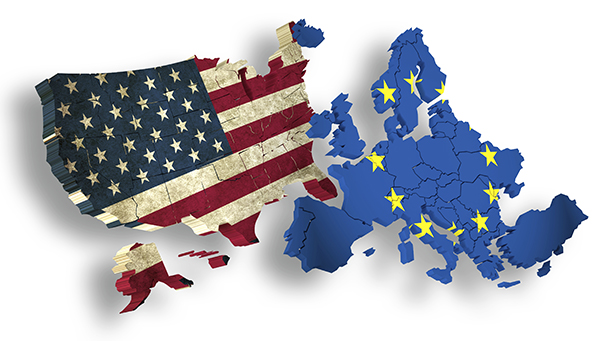
Original by CrimsonAlter published by politrussia.com; translation by J.Hawk
We need Berlin. The reaction to that phrase is a good indicator, because I will be repeating it more than once. Kremlin tactics toward Europe are simple and can be understood by anyone who has mastered the history of the 20th century. We are now observing the third (!) attempt to use continental Europe as a battering ram against Russia, with Washington expecting once again to pull off a not very sophisticated trick which amounts to having Russians do the dying, and the Americans (who will once again sit tight on their side of the ocean and then make movies about how they won) garnering as many benefits as possible from the (supposedly) intra-European conflict. Those who like this scheme should be categorized either as idiots or as State Department agents. Luckily, this scheme does not suit the Kremlin. The long-term policy pursued by Russia’s leadership, in spite of the “schizo-patriots'” displeasure, is bringing visible results which much of the audience prefers not to notice because they don’t fit into their worldview or seem too esoteric.
The effects of working with the independent component of Europe’s elite, which doesn’t like the prospect of Europe being reduced to the status of a colony and used by the Americans as a battering ram against Russia, are most visible in the most important, namely economic, sphere. One should keep in mind that the most important of current geopolitical conflicts is not Syria and certainly not Ukraine, but rather the conflict around TTIP which the US is seeking to impose on the EU. This partnership includes literally thousands of elements concerning economic, technical, and even judicial US-EU collaboration, and is being presented to its audience as a free trade zone on steroids, but in reality its key element is the elimination of Europe’s sovereignty. Under the pretext of protecting US corporate investor interests, TTIP proposes that private courts of arbitrage will have the right to block laws adopted by European parliaments if they infringe on US corporate interests, interests which are always interpreted very broadly. Once TTIP is signed in its current form, EU becomes a US colony with fewer rights than Costa-Rica. It is evident that the Americans are using all means of influence in order to have the treaty signed as soon as possible.
Here the fans of the theory that Europe is a powerless US colony have suffered a paradigm shift, because the EU, specifically Germany and France, have been evading signing that treaty for two years already, and all efforts to push it through the European Parliament have come to nought, just as the direct US-EU talks did. For the last two years, the experts who believe in US omnipotence have, with enviable regularity, been claiming that TTIP is inevitable, so if Obama demands it to be signed it will be signed, because Europe has nowhere to go and those who believe in the independence of an influential part of Europe’s elite have succumbed to wishful thinking. But TTIP has not only not been signed, but it is in its death throes since Washington already publicly admitted there is a deadline–if it is not signed before Obama’s term expires, it will be put off indefinitely.
US chances began to decline after the EU Parliament adopted a range of demands toward the TTIP, including the elimination of supra-national courts and subjecting US corporations to European laws and judicial systems, and now the independent part of EU elite inflicted yet another blow to US ambitions. France’s PM Manuel Valls said that TTIP cannot be concluded if it does not respect EU interests.





Great analysis!
I recommend this article too, for better understanding: http://www.independent.co.uk/voices/comment/what-is-ttip-and-six-reasons-why-the-answer-should-scare-you-9779688.html